Filter by
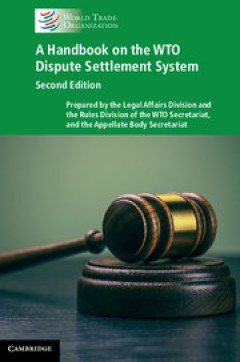
A Handbook on the WTO Dispute Settlement System
The WTO dispute settlement system has become one of the most dynamic, effective and successful international dispute settlement systems in the world over the past twenty years. This second edition of A Handbook on the WTO Dispute Settlement System has been compiled by the dispute settlement lawyers of the WTO Secretariat with a view to providing a practice-oriented account of the system. In add…
- Edition
- -
- ISBN/ISSN
- 9781108265423
- Collation
- -
- Series Title
- -
- Call Number
- -
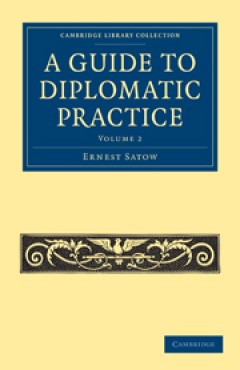
A Guide to Diplomatic Practice
Recruited straight from university, Ernest Satow (1843–1929) became one of the most respected British diplomats, particularly in Japan, where he is still remembered. After a career spent mostly in the rapidly developing Far East, he retired in 1906. Just before the outbreak of war, he was asked to compile a work on international diplomacy, and 'Satow', as it has become known, was first publis…
- Edition
- -
- ISBN/ISSN
- 9780511995200
- Collation
- -
- Series Title
- Cambridge Library Collection - British and Irish History, General
- Call Number
- -
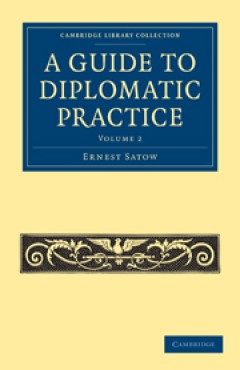
A Guide to Diplomatic Practice
Recruited straight from university, Ernest Satow (1843–1929) became one of the most respected British diplomats, particularly in Japan, where he is still remembered. After a career spent mostly in the rapidly developing Far East, he retired in 1906. Just before the outbreak of war, he was asked to compile a work on international diplomacy, and 'Satow', as it has become known, was first publis…
- Edition
- -
- ISBN/ISSN
- 9780511995194
- Collation
- -
- Series Title
- Cambridge Library Collection - British and Irish History, General
- Call Number
- -
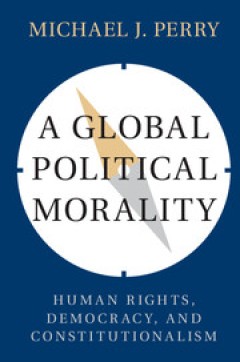
A Global Political Morality Human Rights, Democracy, and Constitutionalism
In A Global Political Morality, Michael J. Perry addresses several related questions in human rights theory, political theory and constitutional theory. He begins by explaining what the term 'human right' means and then elaborates and defends the morality of human rights, which is the first truly global morality in human history. Perry also pursues the implications of the morality of human righ…
- Edition
- -
- ISBN/ISSN
- 9781316665701
- Collation
- -
- Series Title
- -
- Call Number
- -
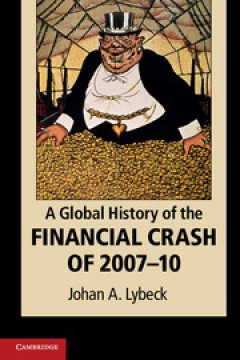
A Global History of the Financial Crash of 2007–10
We have just experienced the worst financial crash the world has seen since the Great Depression of the 1930s. While real economies in general did not crash as they did in the 1930s, the financial parts of the economy certainly did, or, at least, came very close to doing so. Hundreds of banks in the United States and Europe have been closed by their supervisory authorities, forcibly merged with…
- Edition
- -
- ISBN/ISSN
- 9780511984495
- Collation
- -
- Series Title
- -
- Call Number
- -

Lifestyle Politics and Radical Activism
This book is available as open access through the Bloomsbury Open Access programme and is available on www.bloomsburycollections.com. Attempts by people to enact their political beliefs in their daily lives have become commonplace in contemporary US culture, in spheres ranging from shopping habits to romantic attachments. This groundbreaking book examines how collective social movements have cu…
- Edition
- -
- ISBN/ISSN
- 9781441157430
- Collation
- -
- Series Title
- -
- Call Number
- -

A Feminist Critique of Police Stops
A Feminist Critique of Police Stops examines the parallels between stop-and-frisk policing and sexual harassment. An expert whose writing, teaching and community outreach centers on the Constitution's limits on police power, Howard Law Professor Josephine Ross, argues that our constitutional rights are a mirage. In reality, we can't say no when police seek to question or search us. Building on …
- Edition
- -
- ISBN/ISSN
- 9781108697477
- Collation
- -
- Series Title
- -
- Call Number
- -
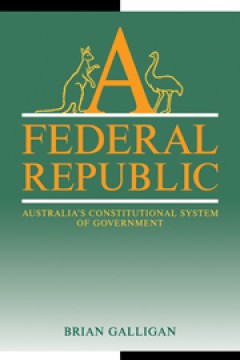
A Federal Republic Australia's Constitutional System of Government
This provocative book, first published in 1995, argues that Australia is already a federal republic rather than a constitutional monarchy. It argues that by adopting a federal constitution in 1901 Australians ensured their status as a sovereign people. While the book does not deny the parliamentary and monarchic elements of the Australian system, it calls for a positive reassessment of the Cons…
- Edition
- -
- ISBN/ISSN
- 9781139084932
- Collation
- -
- Series Title
- Reshaping Australian Institutions
- Call Number
- -

A Farewell to Fragmentation Reassertion and Convergence in International Law
Fragmentation has been much discussed as a threat to international law as a legal system. This book contends that the fragmentation of international law is far exceeded by its convergence, as international bodies find ways to account for each other and the interactions of emerging sub-fields. Reasserting its role as the 'principal judicial organ of the United Nations', the International Court o…
- Edition
- -
- ISBN/ISSN
- 9781139979498
- Collation
- -
- Series Title
- Studies on International Courts and Tribunals
- Call Number
- -

A Divided Republic Nation, State and Citizenship in Contemporary France
This book is an original and sophisticated historical interpretation of contemporary French political culture. Until now, there have been few attempts to understand the political consequences of the profound geopolitical, intellectual and economic changes that France has undergone since the 1970s. However, Emile Chabal's detailed study shows how passionate debates over citizenship, immigration,…
- Edition
- -
- ISBN/ISSN
- 9781107447936
- Collation
- -
- Series Title
- -
- Call Number
- -
 Computer Science, Information & General Works
Computer Science, Information & General Works  Philosophy & Psychology
Philosophy & Psychology  Religion
Religion  Social Sciences
Social Sciences  Language
Language  Pure Science
Pure Science  Applied Sciences
Applied Sciences  Art & Recreation
Art & Recreation  Literature
Literature  History & Geography
History & Geography